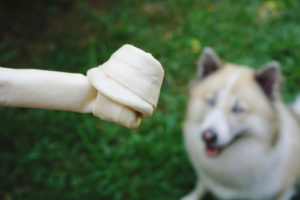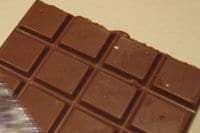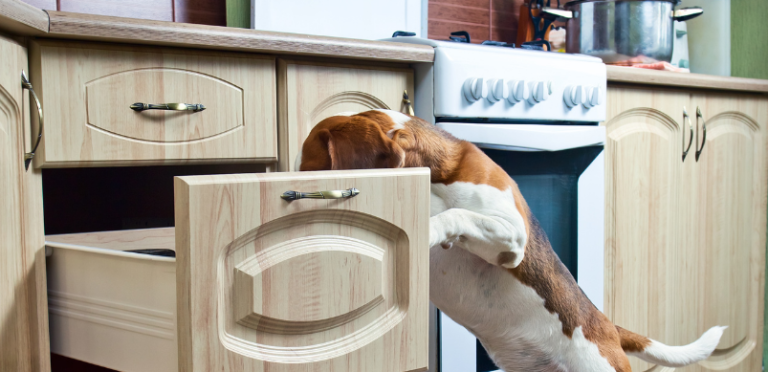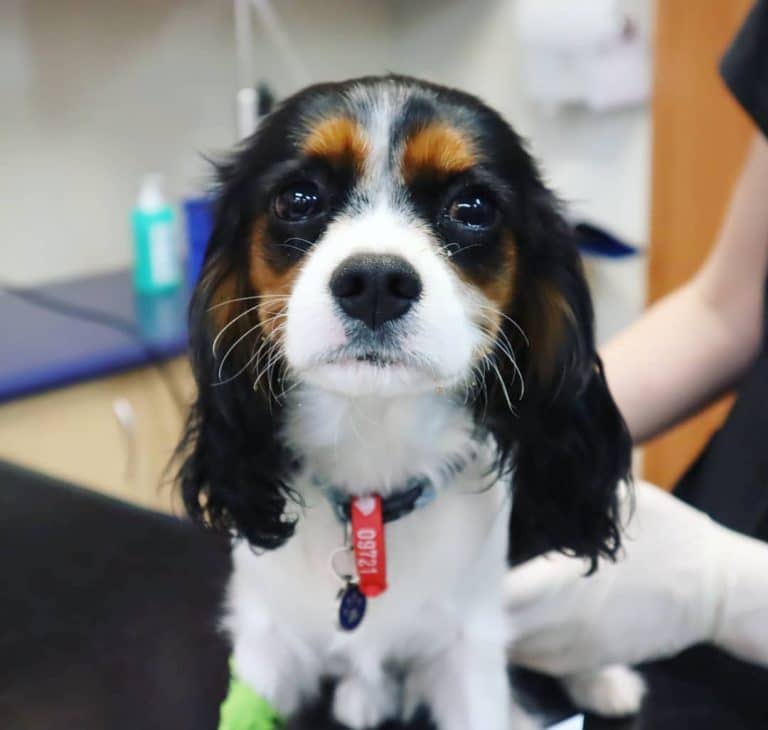Can Dogs Eat Cooked Bones? (the dangers of cooked bones)
Dogs love chewing bones. It’s a wonderful workout for their jaws, as well as a rich source of nutrients from the bone marrow. It also assists to keep their teeth clean. But did you know that some bones are hazardous to our beloved pets? A common question dog owners ask is can dogs eat cooked bones? The answer is a definite no. Before you give your dog a bone, find out why cooked bones are hazardous and which bones are safe.
Can dogs eat cooked bones? The dangers
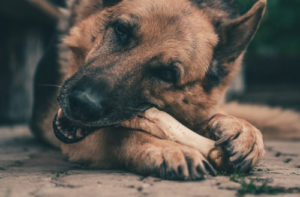
- Broken teeth
- Mouth injuries, such as bone splinters piercing the tongue and gums
- Pieces of bone becoming stuck in the oesophagus, trachea, or intestines
- Constipation from bone fragments
- Internal bleeding from fragments piercing internal organs
- Peritonitis – a bacterial infection in the abdomen that can occur when bone fragments pierce the stomach or intestines
- Pancreatitis from the high-fat content
What should you do if your dog eats a cooked bone?
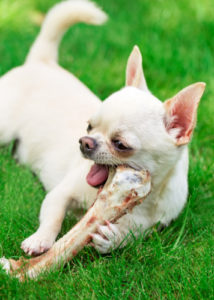
- Gagging or coughing
- Vomiting
- Lethargy
- Straining to defecate
- Excessive thirst
- Licking their lips
- Pacing anxiously
- Cannot sit comfortably
If any of these signs are exhibited by your dog, it may be they’ve received an injury caused by the cooked bone. The size and shape of the bone ingested will also have an influence on the chance of injury. If your pet displays any of the above signs after eating a cooked bone, you should visit your vet right away.
After eating a cooked bone, if your pooch isn’t displaying any signs of injury, we recommend paying close attention over the next few days to ensure the bone passes. If the bone does not pass and your dog has trouble defecating or there is blood in their faeces, or their stomach seems to be welling, or are vomiting, or seem nervous, see your vet immediately.
Can dogs eat cooked bones? The bones you can feed your dog
Now we know the answer to can dogs eat cooked bones? What bones can you give your pooch? The answer is raw bones. Raw bones function as a toothbrush by removing tartar and plaque from their teeth, keeping them clean. They’re also fantastic boredom busters as they provide both mental and physical stimulation. Although raw bones are safer than cooked ones, please be aware they also come with risk.
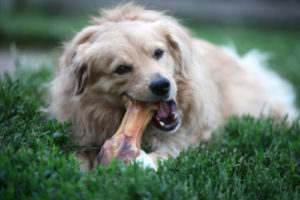
- Any bones covered in large amounts of fat
- Pork bones as they easily splinter and crack
- Rib bones as being small in size are easy to crack and cause an obstruction
- Small bones, such as chicken drumsticks, can be choking hazards, as they can easily get lodged in their airways resulting in death
It’s always a good idea to check with your vet before giving your dog raw bones to ensure they are suitable for your pooch’s health. Some dogs are unable or have difficulty chewing bones due to their breed. Because of their jaw structure and softer teeth, brachycephalic dogs (Boxers, Bulldogs, Pugs, and Shih Tzus for example) are unable to eat raw bones. Dental abnormalities, such as malformed teeth or tooth loss, can impede a dog’s ability to chew. Dogs with misshapen jaws, dental disease, and older dogs may also have difficulties chewing.
What you need to know about raw bones
Raw bones still have risks, such as the potential for bacterial contamination and spoiling within a few days, as well as being a possible choking hazard. However, using these suggestions will help reduce the danger to your dog:
-
Dental treats are a great alternative to bones
Always supervise bone feeding
- Don’t give cooked bones
- Always thaw frozen bones before giving them to your pooch (frozen bones are likely to crack their teeth)
- Store and handle raw bones safely to reduce the risk of bacterial contamination
- Ensure the bone is large enough that your dog can’t fit the whole bone in their mouth
- Don’t give bones when your pooch is starving as they may chew too hard and injure their mouths or try swallowing it
- Always give fresh bones and don’t leave bones out for long periods of time, particularly on hot days when the bone can rot
- Don’t allow your dog to bury the bone as they grow bacteria that can cause infections should it be dug up and chewed on
- At the most only give one to two bones a week as too many raw bones can lead to constipation
- Avoid giving bones to dogs who’ve had dental work or are prone to stomach problems/pancreatitis
Dental treats and chew toys are other alternatives to raw bones you can give your dog. We recommend speaking with your veterinarian before offering bones.
If your pet has swallowed a cooked bone or is ill or injured, visit your local vet or Perth Vet Emergency immediately.

